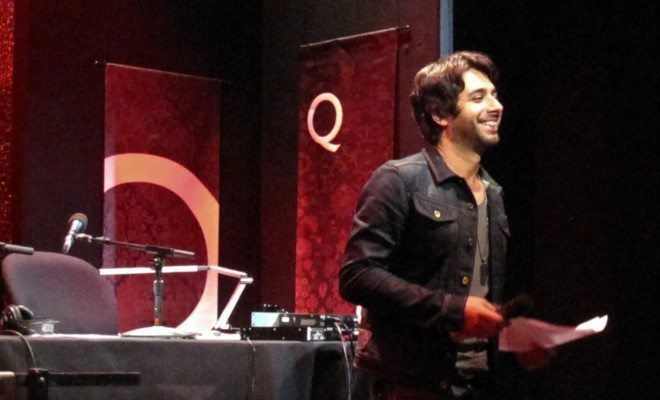 "Jian" courtesy of [Ariane Colenbrander via Flickr]
"Jian" courtesy of [Ariane Colenbrander via Flickr]
World
Jian Ghomeshi’s Acquittal Provokes Debates on Victim-Blaming and Consent
In a controversial ruling, Canadian radio host Jian Ghomeshi was found not guilty on multiple accounts of sexual assault and one count of choking based on the allegations of three women. In his judgment, Justice William B. Horkins cited “serious deficiencies in the evidence” that left reasonable doubt in the case.
Ghomeshi was the host of the popular radio show “Q,” but was fired from his position at the Canadian Broadcasting Corporation (CBC) last October after the network claimed to have seen evidence of him causing “physical injury” to a woman. Around the time of his dismissal, multiple women came forward to the Toronto Star with various allegations of violence and sexual harassment against Ghomeshi (there would end up being over 20 accusations total). This particular trial involved incidents occurring in 2002-2003 involving three women, two who chose to remain unidentified during the trial; the third was Canadian actress Lucy DeCoutere.
While it may hold true that there was not enough evidence to garner a conviction for Ghomeshi, the real outrage surrounding the acquittal seems to stem from the actual judgment released by Justice Horkins, which tore apart the testimonies of the alleged victims and addressed any inconsistencies in their recollections of the events as being “outright deception.” Horkins also claimed that the evidence provided included “questionable behaviour” by the witnesses.
Judge in Ghomeshi trial called witness’s behaviour “odd.” Yup! When you’ve been sexually assaulted, things can seem “odd” #IBelieveSurvivors
— DeAnne Smith (@DeAnne_Smith) March 24, 2016
The judge’s comments in #Ghomeshi case uphold that rape culture and victim-blaming is alive and well. #IBelieveSurvivors
— Janet Mock (@janetmock) March 24, 2016
Witness 1 shared rxn to #Ghomeshi verdict w/ @Chatelaine: “He called us all liars. This was an insult to women.” pic.twitter.com/levQxBF1TV
— Sarah Boesveld (@sarahboesveld) March 24, 2016
Further, Horkins hit upon the fact that witnesses failed to disclose information that he believed would be “significant” to the trial, such as the fact that DeCoutere engaged in multiple “kissing sessions” with Ghomeshi the night of the assault, and the fact that victims had engaged in “flirtatious” behavior with him. This response by the judge seemed to imply that this behavior by the witnesses were indications of consent on their part.
Ghomeshi himself was never put on the stand; however, after his firing by CBC he responded in a now-deleted Facebook post, indicating that his aggressive sexual behavior was consensual. He wrote:
Let me be the first to say that my tastes in the bedroom may not be palatable to some folks. They may be strange, enticing, weird, normal, or outright offensive to others. But that is my private life. That is my personal life. And no one, and certainly no employer, should have dominion over what people do consensually in their private life.
After the news of the verdict broke, protests broke out in front of the courtroom in Toronto, and people gathered to rally in support of the accusers. There were also calls by many for legal reform in sexual assault cases within the Canadian legal system. Ghomeshi’s fight is not completely over yet; he will be back on trial in June to face one of the other charges levied against him.
Actress Zoe Kazan also released a series of tweets yesterday, alleging that Ghomeshi had acted inappropriately towards her:
Before we went on air, he told me I was “just his type.” “Funny, sexy, just the right amount of damage,” he said (after talking abt 3 mins).
— zoe kazan (@zoeinthecities) March 24, 2016
Later he showed up @ party I was at & wdnt leave me alone. His unwanted attention made me feel like I’d “asked for it.” I felt dirty & sad.
— zoe kazan (@zoeinthecities) March 24, 2016
This behavior is insidious, but so is a culture that condones it, by turning a blind eye, or shaming the victim. We internalize these mores.
— zoe kazan (@zoeinthecities) March 24, 2016
Ghomeshi may have been set free by the Canadian legal system, but in the court of public opinion, it looks as if his reputation may be tarnished for good.








Comments